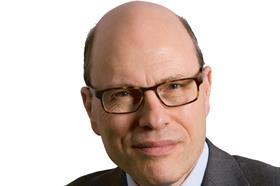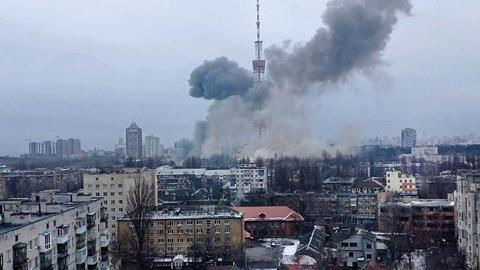Karim Khan QC, prosecutor of the International Criminal Court (ICC), wasted no time this week in launching an investigation into war crimes in Ukraine.

A formal investigation of this kind is normally preceded by what’s called a preliminary examination. But Khan’s predecessor Fatou Bensouda began one of those as long ago as 2014. Bensouda concluded in 2020 that an investigation into previous events in Ukraine would have been justified but stopped short of taking the case to the next level. That at least enabled Khan to hit the ground running.
The British prosecutor now has the chance to put aside some of the many regional and political cases he inherited on his appointment last year and concentrate on the man who, over the past week, has shown himself to be the world’s most dangerous war criminal. There is clear evidence that Russia has been targeting civilians and non-military objectives in breach of international humanitarian law.
However, Khan frankly admitted that he did not have the resources to investigate a war on the scale of Russia’s invasion. ‘I will be calling for additional budgetary support, for voluntary contributions to support all our situations, and for the loan of gratis personnel,’ he said. ‘The importance and urgency of our mission is too serious to be held hostage to lack of means.’
Khan announced late on Wednesday that 39 states, including the United Kingdom, had referred the situation in Ukraine to the court. That allowed the prosecutor to begin his investigation without a court referral and start collecting evidence immediately.
Neither Ukraine nor Russia is a state party to the ICC’s statute. But Ukraine has given the court jurisdiction to investigate acts committed on its territory since 2013. That could lead to charges of war crimes, crimes against humanity and genocide against Vladimir Putin and his senior commanders.
Finding evidence against them should not be particularly difficult. The real challenge is to bring them before the ICC or a national court. No doubt Putin and his generals regard that as inconceivable. But it is worth remembering that Slobodan Milosevic, the former Yugoslav president, stood trial at the International Criminal Tribunal for the former Yugoslavia, a precursor of the ICC.
Milosevic died before his trial could be concluded but Radovan Karadzic, the former Bosnian Serb leader, is now serving a life sentence – in a British prison – and the former Bosnian Serb military commander Ratko Mladic was also sentenced to life imprisonment by the tribunal.
Because neither Ukraine nor the Russian Federation are parties to the ICC’s founding statute, it has no jurisdiction to try Putin for the crime of aggression. However, he could face that charge if he ends up in a country that is willing to put him on trial.
Russia’s invasion of Ukraine is a clear breach of article 2(4) of the UN charter, which requires member states to refrain from the ‘use of force against the territorial integrity or political independence of any state’. The Russians can point to conflicts in which western states have stretched the exception of ‘collective self-defence’ to breaking point. But nobody outside the Kremlin regards Putin’s actions as justified.
International lawyers – asked about the failure of international law to prevent this war – point out that individuals can now be held to account. They also took some comfort from the fact that Russia offered a legal pretext for its actions – even though it was entirely spurious. Putin had claimed he was taking action to defend Russians from genocide in Ukraine’s eastern regions of Luhansk and Donetsk.
To counter this move, Ukraine launched proceedings against Russia last weekend at the International Court of Justice (ICJ). The Ukrainian government is seeking to establish that ‘Russia has no lawful basis to take action in and against Ukraine for the purpose of preventing and punishing any purported genocide’.
In a BBC interview, Professor Philippe Sands QC told me this was ‘a very original application’. Indeed, it may seem entirely academic. But Ukraine cannot be criticised for going down the only legal route it has while also deploying military force and diplomatic pressure. Neither Russia nor Ukraine has accepted the ICJ’s compulsory jurisdiction. But both countries are parties to the genocide convention of 1948.
The Ukranian government is represented by the international law firm Covington & Burling. Jonathan Gimblett, a partner in their London office, told me ‘it is Ukraine’s case that the allegation of genocide that Russia has used to justify its intervention in Ukraine is false. As such, Ukraine seeks an order from the ICJ ordering Russia to immediately suspend its military operations based on that false claim’.
The ICJ will hold a two-day hearing at the beginning of next week. A ruling is expected before the end of the month. And if Russia ignores it? That would be just another breach of international law.
joshua@rozenberg.net
































No comments yet